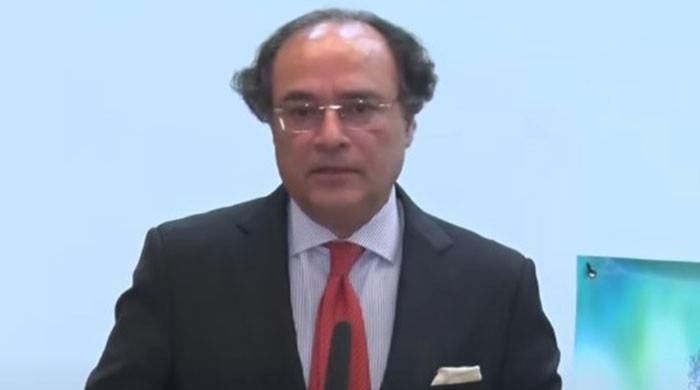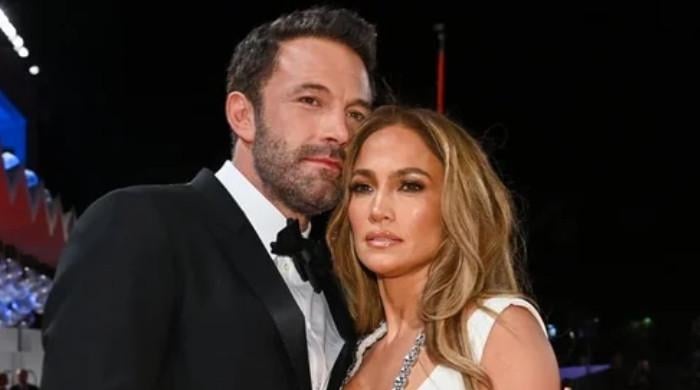- The country will develop only through economic reforms: Aurangzeb.
- Minister highlights role of private sector in country's economy.
- He opposes government involvement in businesses related to the private sector.
As the government led by Prime Minister Shehbaz Sharif awaits approval by the Executive Board of the International Monetary Fund (IMF) for a fresh bailout package, Finance Minister Muhammad Aurangzeb said on Thursday that reforms are inevitable if the country is to get rid of the Washington-based lender.
“Reforms are essential to get rid of the IMF” […] “The country will develop only through economic reforms,” Aurangzeb said while speaking at the inaugural ceremony of the Securities and Exchange Commission of Pakistan (SECP) headquarters in Islamabad, adding that the private sector is being encouraged to play a role in the economy.
The finance czar's comments come after the government last month reached a $7 billion, 37-month bailout program with the IMF, which is expected to be approved by the lender's executive board this month.
However, the board's approval, according to the finance minister, is tied to a debt profile of $12 billion from friendly countries, including $5 billion from Saudi Arabia, $4 billion from China and $3 billion from the United Arab Emirates (UAE) for a period of three to five years.
The cash-strapped country has been facing economic problems for months, caused by various factors including a weakening local currency, depleting foreign exchange reserves and others.
Although Islamabad has managed a primary balance of Rs0.952 trillion, equivalent to 0.9 per cent of gross domestic product (GDP), the country faces a rapidly widening debt trap as the federal government's net revenues are insufficient to cover even a major expenditure item during fiscal year 2023-24.
Pakistan needs to repay $24.8 billion in external debt during the current fiscal year, data from the State Bank of Pakistan (SBP) showed on Wednesday.
Of the total amount of $24.8 billion, $21.2 billion corresponds to principal payments and $3.6 billion to interest payments.
In terms of gross financing requirements, the governor indicated that the total amount of $4 billion corresponds to interest and $22 billion to capital payments.
Positive developments
Highlighting the role of the private sector, Finance Minister Aurangzeb said that it has to come forward and is being encouraged to play its role in the country's economy.
Noting that the Government will not get involved in business done by the private sector, the Minister said that positive developments have emerged with regard to the economy.
Fitch has upgraded Pakistan's rating […] “Global confidence has improved with the new IMF lending programme,” he said, adding that the central bank has also reduced the policy rate, which was a direct manifestation of the country's macroeconomic stability.
His comments come in response to Fitch's rating upgrade of Pakistan, which raised the country's long-term foreign-currency issuer default rating (IDR) to CCC+ from CCC.
Meanwhile, the State Bank of Pakistan on Monday also cut the interest rate by 1% or 100 basis points (bps) from 20.5% to 19.5%, the second consecutive cut, citing a slight cooling in the inflation rate.
Highlighting the government's efforts to attract foreign direct investment, Aurangzeb said his job is to provide the policy framework and underlined the need for reforms in the energy sector.
'It's nothing to worry about'
Speaking on the occasion, Deputy Prime Minister Ishaq Dar said that Prime Minister Shehbaz's government is focused on increasing the country's exports,
“If Pakistan has an external debt of 130 billion dollars, don't worry. [as] “The country's economy has a lot of potential,” said Dar, who is also the country's foreign minister.
Stating that the country is on the path of development, the Deputy Prime Minister said work on development projects continues despite limited resources.
On the issue of reforms, Dar echoed the finance minister's comments, calling them the “need of the hour.”
“We face all kinds of challenges […] There are opportunities for economic development [and] It is only necessary to remove the obstacles [in this regard],” he said.












